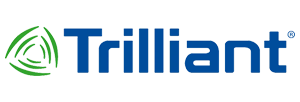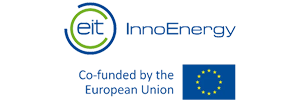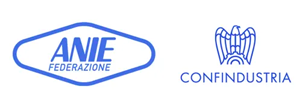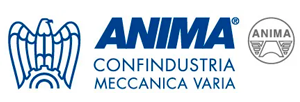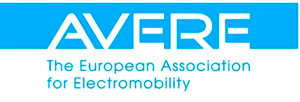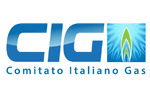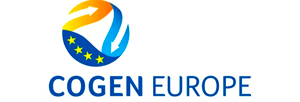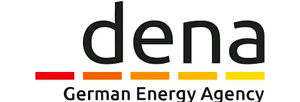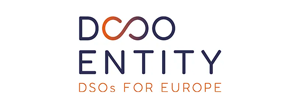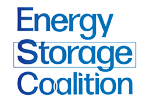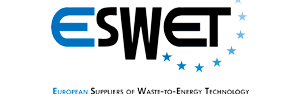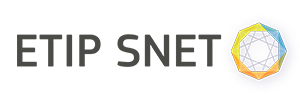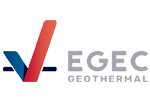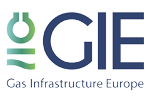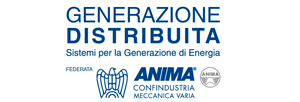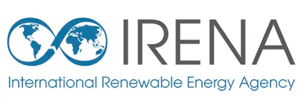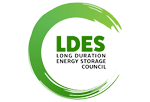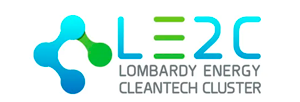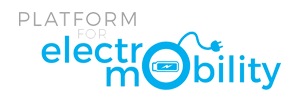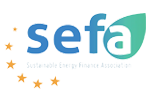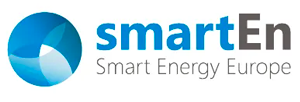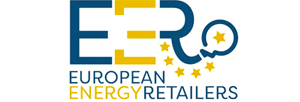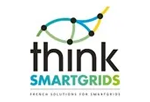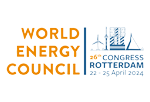Unblocking Europe’s Innovation Pipeline: Capital, Coordination, and Collaboration in Energy Innovation
)
- Event: Enlit Europe
- Date: 24th October 2024
- By: Kim Chen, Moderator and CEO of Innovation Force
- Estimated Read Time: 10–12 minutes
Quick Summary
Cleantech startups are driving the next wave of energy innovation in Europe—but funding models, policy fragmentation, and slow implementation continue to hinder progress. At Enlit Europe 2024, a high-impact panel explored how coordinated frameworks, startup-friendly capital, and cross-sector collaboration can accelerate a pan-European energy strategy.
From AI-powered mapping and decentralised energy marketplaces to strategic venture funding and IP clarity, the panel unpacked what’s blocking the innovation pipeline—and how to fix it.
Introduction: Is Europe Losing Its Innovation Edge?
As Europe accelerates its transition to a decarbonised, decentralised, and digitised grid, energy innovation has never been more critical—or more complex. Yet, many insiders are now asking a provocative question: is Europe losing its innovation edge?
That was the central theme driving a dynamic panel discussion at Enlit Europe 2024: "Unblocking Europe’s Innovation Pipeline". Moderated by Kim Chen, CEO of Innovation Force, the session brought together leaders from across the innovation ecosystem—startups, funds, utilities, R&D institutes, and platform providers—to unpack the barriers standing in the way of meaningful progress.
Joining the panel were:
- Aurelia Satin (Chief Business Officer, Exodigo)
- Adrian Esberg (Division Leader, Distribution Solutions at ABB)
- Mark McGranaghan (EPRI Fellow, Electric Power Research Institute)
- Peter Zauner (CEO & Co-founder, Nobile)
- Federico Ruggiero (Investor, Klima Fund)
Their lively conversation was divided into three core themes: access to capital, the (urgent) need for a pan-European innovation framework, and the power of cross-sector collaboration.
Capital Access – Myth of the Money Barrier?
“To scale, you need capital, but also a clear path to revenue.” – Adrian Esberg, ABB
Despite media headlines suggesting a funding squeeze in cleantech, the panel argued that capital isn’t the core problem—it’s where and how that capital is deployed that defines success.
Federico Ruggiero began by benchmarking the funding timeline through recent data. CB Insights reports show a dip in early-stage cleantech startup deals since 2021, echoing a broader retrenchment following the 2021–2022 investment boom. COVID recovery optimism, inflated valuations, and a flurry of SPAC deals created a temporary surge. But 2023 brought higher interest rates, cautious investor sentiment, and slowed access to public and private capital.
However, crucially, Ruggiero emphasised that the deal flow—the movement of startups from seed through Series A and B—is maturing. Startups are advancing. The real shift? Investors are now focusing on traction and scalability, not just exciting ideas. This shift is evident in how VCs are vetting cleantech startups, prioritising proven metrics.
This was echoed by Aurelia Satin, sharing the origin story of Exodigo, an innovative AI-based underground mapping startup with deep American, Israeli, and European roots. Exodigo successfully raised over $100 million, including a $30 million SAFE round and later a record-breaking Series A.
“Our strategy focused on three things: get strategic investors who knew the terrain, secure early traction with major clients, and show you can scale contract value from thousands to millions quickly,” Satin explained.
For startups in the crowd, her cleantech playbook included:
- Focus on “marquee clients” with large-scale needs.
- Avoid overly complex or fragmented contracting environments.
- Use validation from credible strategic investors as leverage points.
- Always align with VCs who understand your technological and commercial vision.
Peter Zauner provided a contrasting, albeit equally enlightening, tale from central Europe. After serving as CEO of Austria’s largest utility, Zauner left to start Nobile, a decentralised energy platform connecting renewable producers directly with SME consumers. His journey included struggling through mismatched local seed investors, over 500 meetings with VCs across Europe, and ultimately signing a Series A round just days before the event. His advice?
- Mistakes in choosing early investors can haunt your cap table—clean it up early.
- Know your scale plan from day one, and make sure it’s a fit with potential investors.
- Fundraising is a full-time job—guard operational momentum in parallel.
Their conclusion?
Funding isn’t blocked, but trust and traction are required. Add to that the fact that many funding bodies themselves are experiencing capital bottlenecks, and the story becomes increasingly nuanced.
“We need a more patient capital model fit for cleantech,” said Ruggiero. “One that acknowledges the longer gestation period, technical complexity, and CapEx/OpEx mismatch in this sector.”
Does Europe Need a Pan-European Innovation Strategy?
“If you don’t know what ‘good’ looks like, you’re playing a dangerous game.” – Adrian Esberg, ABB
The session shifted gears to explore the structure—or lack thereof—underpinning Europe’s energy innovation mechanisms. While the U.S. benefits from consolidated funding drives like the Department of Energy’s grants under the Inflation Reduction Act, Europe’s bureaucracy is still fragmented.
And yet, Mark McGranaghan of the Electric Power Research Institute (EPRI) challenged the notion that Europe lacks a roadmap. “Frankly, Europe doesn’t need another document. There are plenty—TSO roadmaps, DSO guidelines, Horizon 2020 priorities.” Instead, he argued, the missing piece is implementation.
“The roadmaps aren’t the problem. It’s culture change that’s lagging. This is a conservative industry. We happily pilot new ideas—what we don’t like is changing entrenched operational models.”
Esberg agreed, noting that “Europe’s core barrier isn’t technology—it’s scale.” Fragmentation, regulatory variability, and burdensome local requirements often suck project momentum dry. “If it takes three contracts and 183 pages each to pilot across three jurisdictions—which it often does—it’s a non-starter for startups.”
Satin added a potent example: “In the U.S., we receive grants with no IP strings attached. In Europe, IP negotiations begin before proof-of-concept is even proven. That kills trust and the commercial pathway.” The message was clear: IP policy, contracting mechanisms, and fragmented permitting are Europe’s innovation kryptonite.
Zauner, speaking from the startup trenches, argued plainly: “We don’t have a real European internal energy market. Member states translate directives differently, build barriers to protect incumbents, and limit data access.”
His vision going forward?
“What we need is open standards, interoperable frameworks, and open data mandates that make new business models possible. At the moment, we’re building to survive. We should be building to scale.”
This message fed a larger discussion about creating a unified, pan-European energy strategy—not just more documents, but real action toward harmonisation.
Collaboration – The Catalyst for Unblocking the Pipeline?
“It’s collaboration or stagnation.” – Kim Chen, Innovation Force
The final third of the discussion homed in on what might offer a realistic way forward—and here, collaboration emerged as the unlikely hero.
Polls from the live panel showed a majority of attendees agreed that poor collaboration and lack of diversity in stakeholders are slowing progress. When asked who had worked with peers outside their country or continent, far fewer hands stayed raised.
Mark McGranaghan outlined how EPRI is addressing this through several powerful initiatives:
- Incubate Energy Labs – facilitates proof-of-concept pilots between startups and utilities, backing IP protection and commercial scale intentions.
- European Energy Innovation Interest Group – a 150+ member knowledge-sharing forum focused on innovation program alignment and implementation challenges.
- Global Interoperability Initiatives – working toward harmonising standards that enable plug-and-play business models across jurisdictions.
He emphasised the value of pilot programs but warned of “pilot fatigue.” Collaborations without commercial follow-through do more harm than good. In this spirit, Esberg pressed companies to define “how good looks”—and make that actionable from the start.
"If you're doing a pilot for under €200,000, there needs to be a clear path to €2 million in commercial value, or it's not worth starting," Satin reinforced.
The panel advocated for venture arms embedded within large European energy corporations, rather than isolated “innovation hubs,” citing longer-term alignment and support for graduation from pilot to production.
Conclusion: Time Is the Real Roadblock
In concluding remarks, speakers collectively pointed to time—not funding—as Europe’s real innovation bottleneck. The energy transition requires speed, certainty, and a cultural levelling-up in how potential solutions are evaluated, piloted, and scaled.
Key Takeaways:
- Access to funding is evolving, not evaporating. Later-stage deals in cleantech are on the rise; investors are chasing traction over novelty—especially for high-potential cleantech startups.
- European innovation is not blocked by ideas, but by fragmented frameworks, multi-layered contracting practices, and misaligned IP policies.
- Collaboration works best when incentives align. Venture arms > innovation hubs when it comes to scaling startups in the energy innovation space.
- Standardisation, open data, and IP clarity are urgent needs tied directly to creating a true pan-European energy strategy.
- Funding means little without scale. Time to revenue must guide Europe’s innovation strategy.
Session Takeaways
-
Funding is evolving—not drying up. Cleantech startups must show traction.
-
Regulatory fragmentation blocks progress. Harmonisation is critical.
-
IP and contract complexity kill early-stage innovation.
-
Venture arms are better than disconnected innovation hubs.
-
Europe needs to operationalise innovation at the speed of its climate targets.
Final Thought
Europe has the talent, the ideas, and the climate imperative. Now it must deliver startup success through speed, clarity, and unified action. The cleantech innovation pipeline is full—but until it's unblocked, Europe risks stalling its energy future.
Other Past Sessions
-
Event: Enlit Europe 2024 Date: 23rd October 2024 By: Kevin O’Donovan, Emily Stifel, Ross Marcinko, and Giovanni Bodega Estimated Read Time: 5–8 minutes Introduction: Redefining the Future of P ...
-
Event: Enlit Europe 2024 Date: 23rd October 2024 By: Panel Discussion featuring Sebastian Copen, Maxim Suk, Marcia Polti, Jao Raphael, and Nikola Beck Estimated Read Time: 9–10 minutes Introdu ...
-
Event: Enlit Europe 2024 Date: 23rd October 2024 By: Panel Discussion featuring Sebastian Copen, Maxim Suk, Marcia Polti, Jao Raphael, and Nikola Beck Estimated Read Time: 9–10 minutes Introdu ...
-
Event: Enlit Europe Date: 24th October 2024 By: Discussion Panel (Moderated by Ralph) Estimated Read Time: 7–8 minutes Introduction: Rethinking Dispatchable Power as the Backbone of Net-Zero A ...
-
Event: Enlit Europe 2024 Date: 24th October 2024 By: Kate Willard Estimated Read Time: 15–20 minutes Introduction: Reimagining Industry for a Net-Zero Future Are we decarbonising fast enough—a ...
-
Event: Enlit Europe 2024 Date: 23rd October 2024 By: Gaia Gallotti (IDC) – Panel Moderator Estimated Read Time: 7–8 minutes Introduction: Charting the Course for the Utility of the Future The ...
-
Event: Enlit Europe 2024 Date: 23 October 2024 By: Toma Bert (Managing Director, ESMIG) Estimated Read Time: 25'30 minutes Introduction: Smart Metering at the Heart of Europe's Energy Revolution ...
-
Event: Enlit Europe Date: 24th October 2024 By: Kim Chen, Moderator and CEO of Innovation Force Estimated Read Time: 10–12 minutes Quick Summary Cleantech startups are driving the next wave of ...
-
Event: Enlit Europe Date: 24th October 2024 By: Beat Petrovic, Senior Analyst at Ember Estimated Read Time: 10–12 minutes Quick Summary Energy flexibility, smart grid solutions, and grid congest ...
-
Event: Enlit Europe Date: 24th October 2024 By: George Biscardini Estimated Read Time: 10-12 minutes Quick Summary Hydrogen energy in Europe, coordinated energy systems, and integrated energy in ...


)
)
)
)
)
)
)
)
)
)






